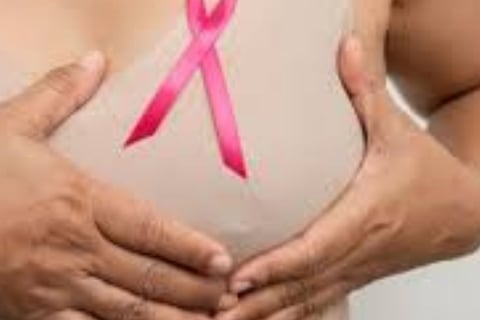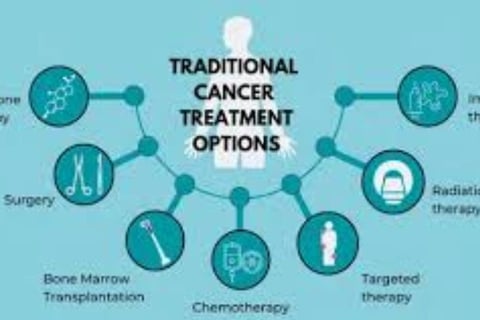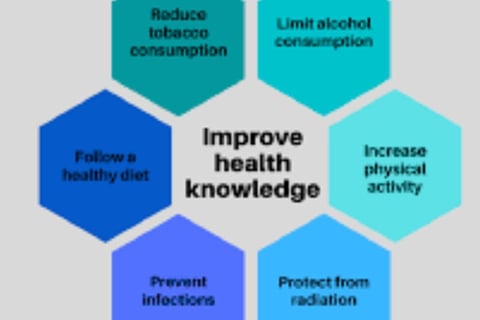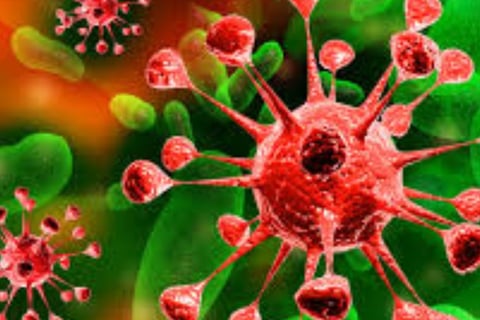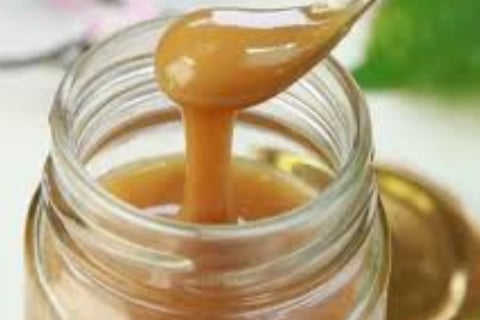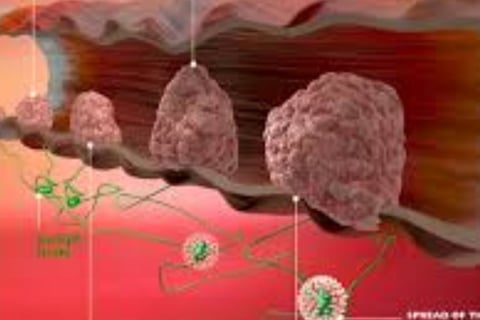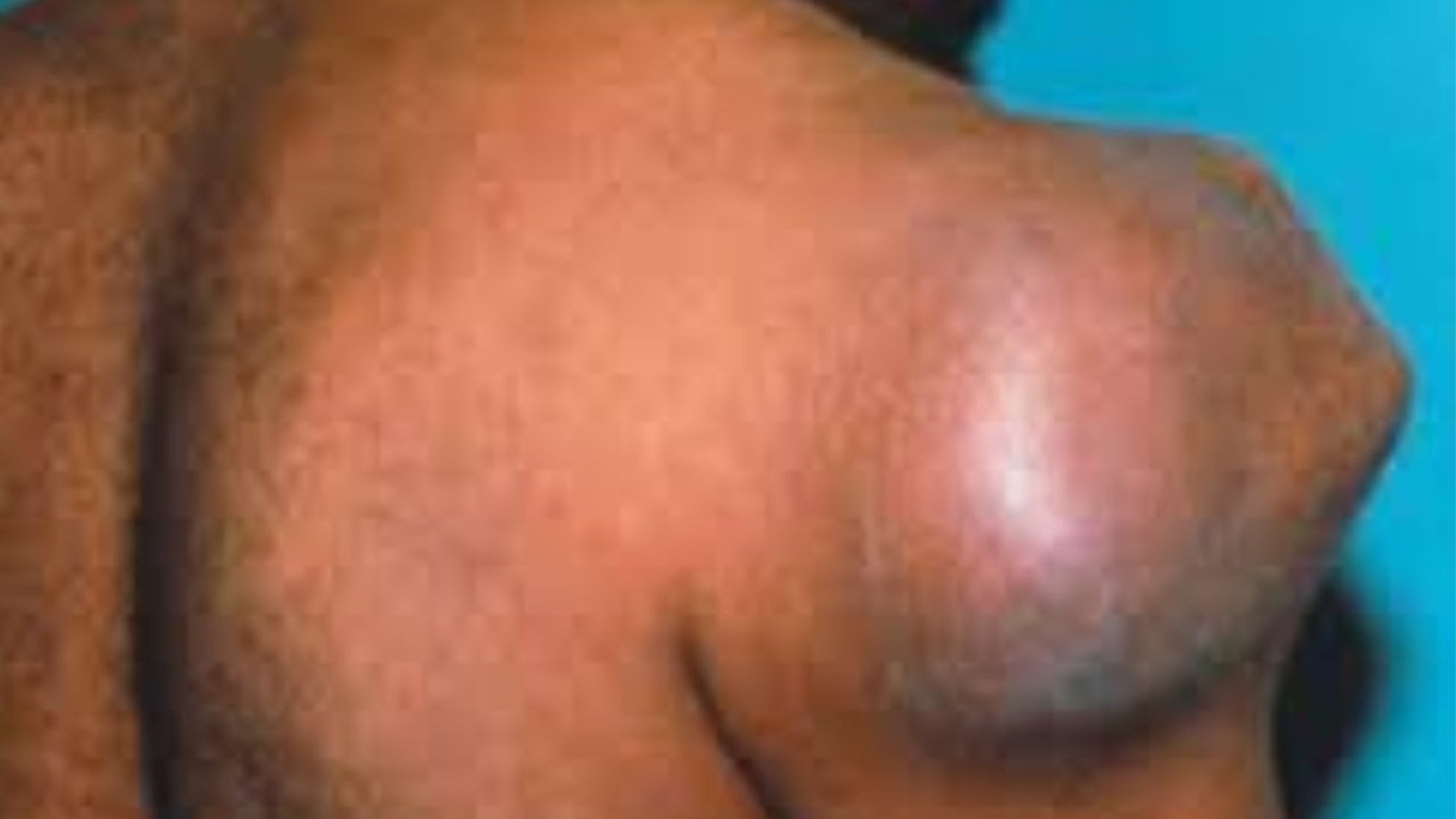
Honey and Fasting : Unspoken Strategies in Cancer Treatment
Discover effective cancer protection strategies including quitting tobacco, eating plant-based foods, maintaining a healthy weight, and more. Learn how lifestyle changes and natural remedies like honey and fasting can aid in cancer prevention and significantly reduce your risk.
CANCER
Dr.Hassan Al-warraqi
11/13/20247 min read


Unspoken Strategies in Cancer Management
Reducing cancer risk involves more than just medical intervention; it’s a balanced combination of lifestyle choices, proactive healthcare, and environmental mindfulness.
Here are essential strategies for a holistic approach to cancer protection:
Lifestyle Choices for Cancer Prevention
Nourish for Health:
- Balanced Diet : Emphasize fruits, vegetables, whole grains, and lean proteins. Minimize processed meats, red meat, sugary drinks, and unhealthy fats.
- Eat Plant-Based : Go for a Mediterranean-style diet that’s rich in plant-based foods.
- Limit Alcohol : Keep alcohol intake to a minimum, or skip it entirely, to reduce cancer risk.
Move for Health:
- Regular Exercise : Aim for 150 minutes of moderate exercise weekly, such as brisk walking or cycling.
- Stay Active : Include activities you enjoy to reach at least 30 minutes of movement daily.
- Healthy Weight : Being overweight raises cancer risk, so managing weight is crucial.
Avoid Tobacco :
- Quit Tobacco : Say no to all forms of tobacco to protect your lungs and overall health.
- Avoid Secondhand Smoke : Exposure matters, so steer clear when possible.
Protect Your Skin :
- Smart Sun Protection : Use SPF 30+ sunscreen, wear protective clothing, and limit midday sun exposure.
- Avoid Tanning Beds : Stick to natural skin protection for better skin health.
Medical Interventions for Cancer Prevention
Vaccinations :
- HPV and Hepatitis B : These vaccines lower the risk of certain cancers. Check with your healthcare provider to stay current.
Regular Screenings :
- Preventive Health Checks : Screenings like mammograms, colonoscopies, and skin checks are key for early detection and improved outcomes.
Consider Medication Options :
Risk-Reducing Medications : In some cases, doctors may recommend medications like aspirin to lower cancer risk.
Always discuss benefits and risks with your provider.
Environmental Awareness
Limit Carcinogen Exposure :
- Avoid Known Carcinogens : Reduce contact with substances like asbestos, radon, and harmful chemicals.
Workplace Safety :
- Protective Measures : If your job involves exposure to carcinogens, use protective equipment and follow safety guidelines.
Additional Considerations
Family History :
- Genetic Testing : If cancer runs in your family, talk to your doctor about genetic testing options.
Stress Management :
- Lower Stress : Chronic stress can weaken immunity.
Use stress-reduction techniques like yoga, meditation, or mindfulness practices.
While these strategies can significantly reduce cancer risk, no single approach offers complete protection.
Work with your healthcare provider to create a personalized cancer prevention plan, and remember, each positive step makes a difference.
Starting small is better than not starting at all.
The Role of Honey and Manuka Honey in Cancer Prevention
Honey, particularly Manuka honey, is gaining attention for its potential cancer-preventive properties due to its rich composition of antioxidants, antibacterial compounds, and other bioactive substances.
Here's a closer look at how honey, and specifically Manuka honey, might contribute to cancer prevention:
1. Antioxidant Powerhouse
Honey is loaded with antioxidants, including flavonoids and phenolic acids, which help neutralize free radicals—unstable molecules that can damage cells and contribute to cancer development.
Manuka honey, harvested from the Manuka tree in New Zealand, has an especially high concentration of these antioxidants.
By reducing oxidative stress, honey may lower the likelihood of cellular changes that could lead to cancer.
2. Anti-inflammatory Effects
Chronic inflammation is a known contributor to many cancers.
Both regular honey and Manuka honey possess anti-inflammatory properties that can help lower inflammation in the body.
This effect may reduce the risk of cancer by minimizing prolonged inflammation that could otherwise damage cells and promote tumor growth.
3. Antimicrobial Properties
Manuka honey is particularly recognized for its antimicrobial effects due to methylglyoxal (MGO), a compound that gives it unique antibacterial potency.
Chronic infections from certain bacteria and viruses can increase cancer risk (such as Helicobacter pylori infection and stomach cancer).
Manuka honey’s antimicrobial action may help protect against such infections, indirectly reducing the risk of associated cancers.
4. Immune Support
Honey is known to support immune function, which is crucial for identifying and eliminating abnormal cells that could lead to cancer.
Manuka honey, in particular, has been shown to stimulate the immune system by promoting the production of cytokines—proteins that regulate immune responses.
A stronger immune system can better defend the body against potentially cancerous cell changes.
5. Apoptosis Promotion and Tumor Suppression
Studies suggest that certain compounds in Manuka honey may promote apoptosis (programmed cell death) in cancer cells, effectively stopping them from proliferating.
While research is still ongoing, preliminary findings indicate that Manuka honey may have a direct anti-cancer effect on certain types of cancer cells, such as those found in breast, colon, and skin cancers.
This anti-tumor effect may stem from its unique combination of bioactive compounds, which interfere with the growth of cancerous cells.
How to Incorporate Honey for Cancer Prevention
- Daily Use : Adding a spoonful of honey or Manuka honey to your diet may help boost antioxidant intake.
Try using it as a natural sweetener in tea, yogurt, or on toast.
- Topical Applications : Manuka honey is also popular for its skin benefits.
It can be applied to minor wounds or skin irritations to help with healing and potentially reduce the risk of infections that could trigger inflammation.
Important Considerations
While honey, and particularly Manuka honey, offers several cancer-preventive benefits, it’s not a standalone solution.
A balanced diet, regular exercise, avoiding tobacco, and managing alcohol intake remain essential for cancer prevention.
Additionally, it’s always best to consult a healthcare professional, especially if you're using Manuka honey as a complementary therapy.
The Role of Fasting Outside of Ramadan in Cancer Prevention
Fasting outside of Ramadan, particularly intermittent and prolonged fasting, 3 white days , monday and thursday ,alternate day fasting or fasting everyday except friday .
may support cancer prevention through mechanisms like
reducing inflammation, lowering insulin levels, improving cellular repair, and promoting autophagy (the body's process of clearing out damaged cells).
By reducing oxidative stress, limiting the availability of glucose (a fuel for cancer cells), and enhancing the immune response, fasting may lower the risk of cancer development.
Additionally, fasting can help manage weight and decrease levels of insulin-like growth factor (IGF-1), which is associated with cancer growth.
However, individual guidance from healthcare professionals is essential for safe fasting practices.
why fasting and honey not mention to the patient as preventive measures
i don't know the reasons . but may be due financial , cultural or educational reasons . that may need a decade to change the mind of the community . but easily due to religious background may convince people of this concept .
keywords :
Quit tobacco, eat plant-based foods, maintain healthy weight, exercise regularly, protect from sun, get vaccinated (HPV/Hepatitis B), practice safe sex, avoid sharing needles, and keep up with medical screenings to significantly reduce cancer risk,Honey and Manuka honey and fasting may aid in cancer prevention through their antioxidant, anti-inflammatory, antimicrobial, immune-boosting, and potential tumor-suppressing properties,fasting,
Unspoken Strategies in Cancer Management: Frequently Asked questions
1. What are the key strategies to prevent cancer?
The primary cancer prevention strategies include adopting a healthy lifestyle:
Eating a balanced diet rich in fruits, vegetables, whole grains, and lean proteins.
Engaging in regular physical activity.
Maintaining a healthy weight.
Avoiding tobacco in all forms.
Limiting exposure to harmful sun rays.
Getting necessary vaccinations, such as HPV and Hepatitis B.
Undergoing regular medical screenings for early detection.
It is also recommended to reduce exposure to carcinogens and follow workplace safety protocols.
2. How important is a plant-based diet in cancer prevention?
A plant-based diet emphasizes consuming large amounts of fruits, vegetables, whole grains, and legumes, which are rich in antioxidants, fiber, and other nutrients that protect cells from damage and inflammation.
This diet also helps reduce the intake of processed meats and unhealthy fats, which are linked to increased cancer risk.
3. How does honey, particularly Manuka honey, contribute to cancer prevention?
Honey, especially Manuka honey, is rich in potent antioxidants that combat free radicals responsible for cell damage and cancer development.
Manuka honey also has anti-inflammatory and antimicrobial properties, reducing the risk of chronic inflammation, a significant cancer risk factor.
Additionally, honey supports the immune system and may help the body combat cancer cells.
Some studies suggest that certain compounds in Manuka honey can induce cancer cell death.
4. What is the role of regular physical activity in cancer prevention?
Regular physical activity helps:
Maintain a healthy weight, reducing the risk of obesity-related cancers.
Lower inflammation.
Improve immune system function.
Enhance cellular repair mechanisms.
Reduce oxidative stress.
Exercise also promotes overall health and reduces the risk of other chronic diseases.
5. What is the significance of fasting (outside of Ramadan) in cancer prevention?
Fasting (e.g., intermittent fasting, fasting on white days, or fasting on Mondays and Thursdays) can prevent cancer through multiple mechanisms:
Reducing inflammation.
Lowering insulin levels.
Enhancing cellular repair processes.
Promoting autophagy (removal of damaged cells).
Reducing oxidative stress.
Limiting glucose availability, which cancer cells rely on for growth.
Strengthening the immune system and aiding in weight management.
6. What medical screenings are recommended for early cancer detection?
Recommended screenings include:
Mammograms for breast cancer.
Colonoscopy for colorectal cancer.
Skin examinations for skin cancer.
Doctors may recommend additional tests based on individual medical and family history. Regular screenings are crucial for early detection and successful treatment.
7. Why might fasting and honey not be included in traditional medical guidelines as cancer prevention measures?
There are several possible reasons, including:
Financial, cultural, or educational factors that may delay the integration of these practices into guidelines.
Ongoing research that has yet to achieve full medical consensus on their effectiveness.
The need for more extensive scientific evidence to support their inclusion.
However, in communities with strong religious or cultural ties to these practices, they can be promoted as part of cancer prevention awareness.
8. Can these strategies provide complete protection against cancer?
No single strategy can guarantee complete protection against cancer.
However, adopting a comprehensive approach that integrates these strategies significantly reduces the risk of cancer.
Collaborate with healthcare providers to develop a personalized prevention plan, and remember that every positive step matters.
The approach should include lifestyle changes, regular medical checkups, and awareness of environmental factors contributing to cancer development.


